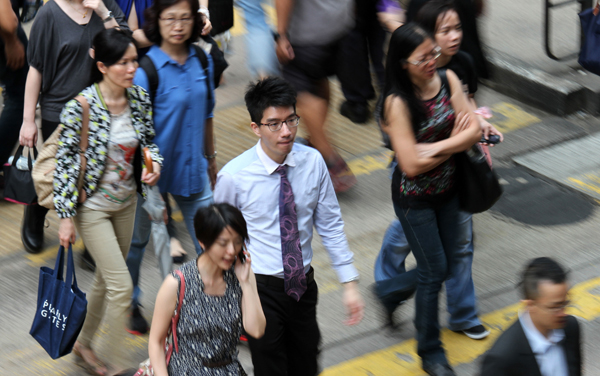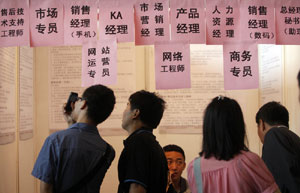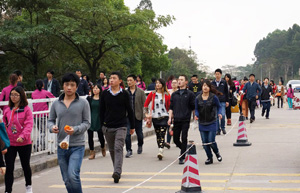Working for the right balance
By Kristine Yang in Hong Kong (China Daily) Updated: 2014-06-02 08:17
 |
|
White collar workers in Hong Kong may feel their options are cramped. Residents of large Asian cities spend more time at work than just about anyone else globally. Photos by Parker Zheng / China Daily |
Long hours and limited options for employees can hit productivity and increase costs for companies
The death of Pradnya Paramita in Jakarta last December kicked off a debate about work hours in Asia. The 27-year-old copywriter collapsed and died after allegedly working for 30 consecutive hours.
In a report last August, job-listing website eFinancialCareers found more than two-thirds of 1,738 of Singapore's finance and banking professionals surveyed worked weekends, and about 43 percent remained contactable for work day and night.
In the 2014 Human Capital Survey released by accounting body CPA Australia, staff members in Hong Kong said they endured long work days and this was a key reason for changing jobs.
 |
|
 |
In reaching out to 350 accounting professionals at multinational corporations, accounting firms, listed and private companies and non-profit organizations for the survey, CPA Australia found 45 percent of respondents hoped to change jobs in the next six months, and a third said they were looking for a better work-life balance. Salaries and career development came second and third.
This may have a direct bearing on Hong Kong's economic prospects, analysts said.
"Hong Kong's competitiveness and productiveness are two different things," said Peter Lee, managing director at Veco Invest (Asia) and former divisional president at CPA Australia.
"If employees have a better work-life balance, their (productivity) will improve, thereby maintaining Hong Kong's competitiveness."
The issue extends to most countries in the region, to varying degrees.
Workers in the largest Asian cities spend more time at work than just about anyone else globally. However, this may actually be costing companies money and pushing workers away from some of the world's fastest-growing economies.
According to the International Labour Organization, most countries in Asia have a 48-hour working week, but almost a third of the countries in the region do not have a regulated maximum of hours of work. Another third put the weekly limit at 60.
|
 |
 |
| China's top 10 cities for salaries | The dream and reality for young Chinese workers |
- Working for the right balance
- Manufacturing hits this year's highest level
- Air travelers can expect better mobile services
- Renminbi clearing bank to open in London
- China, Malaysia target $160b trade volume
- Survey: Home prices post first drop in 23 months
- China's PMI hits 5-month high, pointing to stabilizing economy
- HNA Group's fleet hits 500

















